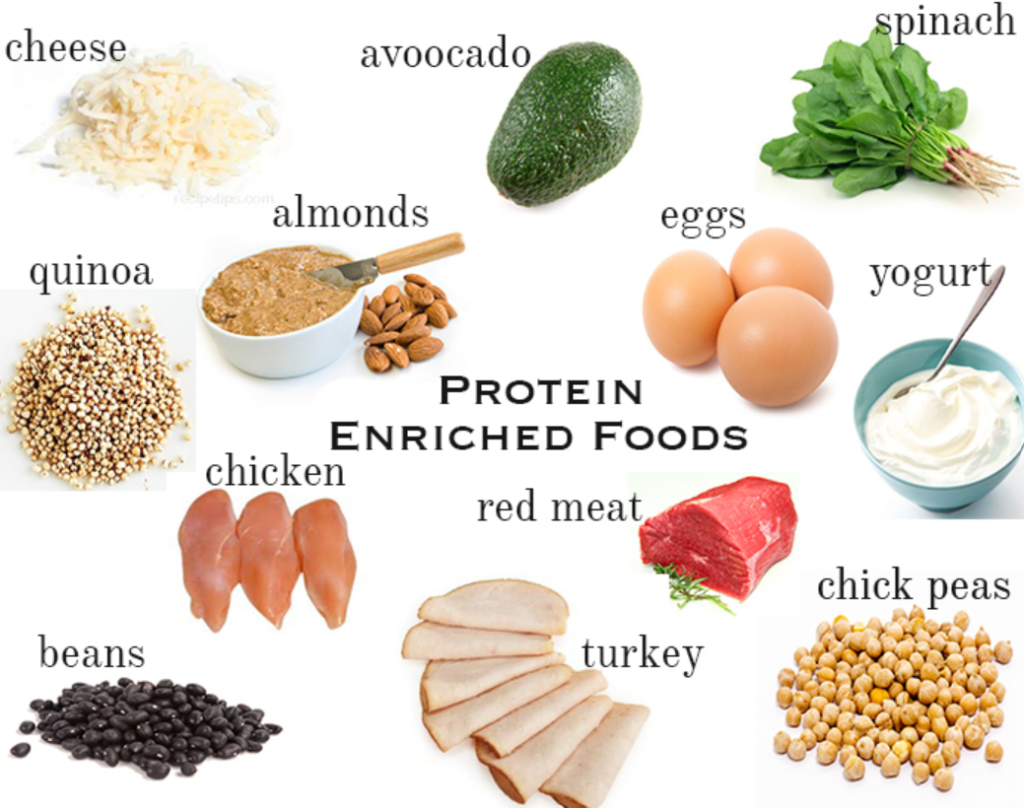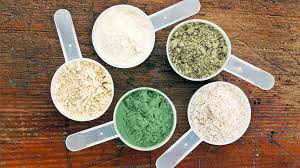Protein has been shown to be beneficial for weight loss in a number of ways.
First, protein can help you feel full and satisfied after eating, which can help you eat fewer calories overall. This is because protein takes longer to digest than other nutrients, such as carbohydrates and fat.
Second, protein can help you preserve muscle mass during weight loss. Muscle tissue is metabolically active, meaning that it burns calories even when you are at rest. So, if you lose muscle mass, your metabolism will slow down and you will be more likely to regain weight.
Third, protein can help you build muscle mass. Muscle tissue is denser than fat tissue, so even if you do not lose a lot of weight, you may see a difference in your body composition if you gain muscle mass.
A study published in the journal Obesity in 2019 found that people who followed a high-protein diet lost more weight and body fat than people who followed a low-protein diet. The high-protein diet also resulted in greater improvements in insulin sensitivity and blood pressure.

Another study, published in the journal Nutrition and Metabolism in 2018, found that people who followed a high-protein diet for 12 weeks lost more weight and body fat than people who followed a low-protein diet. The high-protein diet also resulted in greater improvements in muscle mass and strength.
Look out for these ingredients!
If you are someone trying to lose weight and build muscles at the same time, you might probably know the importance of taking protein-rich food, especially after an intense workout session. Protein helps in muscle recovery, build lean muscles and can also boost your metabolism. Though the best way to include more protein in your diet is by eating protein-rich food like eggs and nuts, but due to scarcity of time, most people opt for protein powder. There are different varieties of protein powder available in the market, which claims to be good for health. However, some powders contain ingredients which can sabotage your weight loss goals. So here are 4 ingredients which should not be there in your protein powder for effective weight loss.
Artificial sweeteners
Sugar is considered harmful when trying to shed kilos. The same goes for artificial sweeteners. Most protein powders contain artificial sweeteners like sucralose, splenda or aspartamine, which can have some negative effects on our health. It may lead to indigestion, headache, migraines, gastric distress and worst of all weight gain. The sweet taste of the sweetener can also make your body crave for more sugary food items.
Artificial flavouring
Just like artificial sweetener, artificial flavouring is also bad for your health. Your protein powder might taste good due to the favouring, but it is not good for your weight loss plan. Mostly protein powder processing companies do not specify what they have added in their product for flavouring purpose. Artificial flavouring can mean anything, which might not be necessarily good for you.
Carrageenan
Carrageenan is used in different kind of ingredients for gelling, thickening and stabilizing purposes. It is derived from seaweed and is believed to cause digestive problems and intestinal inflammation. It is also linked to cancer. Also, there is no need for this compound in your drink. So, avoid buying protein powder that contains carrageenan.
Vegetable Oils
Some protein powders also contain vegetable oils like soybean oil, canola oil, and sunflower oil as a thickening agent. But these fats are processed from hydrogenated sources that contain trans fats, which is not considered good when trying to shed kilos. Trans fats are responsible for increasing the level of bad cholesterol and lower levels of good cholesterol in the body.

Here are some of the best proteins for weight loss:
Whey protein: Whey protein is a fast-digesting protein that is quickly absorbed by the body. This can help you feel full and satisfied after eating, which can help you eat fewer calories overall. Whey protein is also a good source of essential amino acids, which are important for building and repairing muscle tissue.
Casein protein: Casein protein is a slow-digesting protein that helps keep you feeling full for longer. This can be helpful if you are trying to lose weight by reducing your calorie intake. Casein protein is also a good source of calcium, which is important for bone health.
Egg white protein: Egg white protein is a pure form of protein that is low in calories and fat. This makes it a good choice for people who are trying to lose weight or follow a low-calorie diet. Egg white protein is also a good source of amino acids, which are important for building and repairing muscle tissue.
Pea protein: Pea protein is a plant-based protein that is low in calories and fat. It is also a good source of fiber, which can help you feel full and satisfied after eating. Pea protein is a good choice for people who are allergic to dairy or eggs.
Soy protein: Soy protein is a plant-based protein that is high in protein and low in calories. It is also a good source of fiber and isoflavones, which have been shown to have some health benefits. Soy protein is a good choice for people who are vegan or vegetarian.
Which proten source of food is not good for weight loss
While protein is generally beneficial for weight loss due to its satiating effect and role in preserving lean muscle mass, some protein sources may be less conducive to weight loss when consumed in excess or in combination with high-calorie foods. Here are a few protein sources that might not be as suitable for weight loss when consumed without proper portion control or in high-calorie contexts:
- Fatty Cuts of Meat: While meat is a good source of protein, fatty cuts such as ribeye steak or processed meats like sausages and bacon can be high in saturated fats and calories. Consuming these in large quantities may contribute to weight gain.
- Full-Fat Dairy: Dairy products like whole milk, full-fat yogurt, and cheese can provide protein but also contain significant amounts of saturated fats and calories. Opting for low-fat or non-fat dairy options can be a better choice for weight loss.
- Fried and Breaded Proteins: Fried or breaded protein sources, such as fried chicken or fish, can be high in calories due to the cooking method. The added oils and breading can add unwanted calories and hinder weight loss efforts.
- Processed Protein Snacks: Some protein-rich snacks, like protein bars and shakes, can be highly processed and contain added sugars or unhealthy ingredients. It’s important to choose options with minimal added sugars and additives.
- High-Calorie Protein Smoothies: While protein smoothies can be a convenient and nutritious option, they can become high in calories if you add excessive amounts of high-calorie ingredients like nut butters, sweeteners, and fruits.
- Sweetened Yogurts: Flavored yogurts, especially those with added sugars, can contain a significant amount of calories and undermine weight loss efforts. Choose plain Greek yogurt and add your own healthy toppings.
- Nuts and Nut Butters: While nuts and nut butters provide healthy fats and protein, they are calorie-dense. Overconsumption can lead to excess calorie intake, so portion control is important.
- Plant-Based Protein Sources with Added Fats: Plant-based protein sources like legumes, lentils, and beans are generally good for weight loss. However, certain preparations with added fats, such as deep-frying, can increase calorie content.
- Protein-Rich Snacks with High Caloric Density: Snack foods marketed as high-protein, such as chips and crackers, may still be calorie-dense. Pay attention to portion sizes and nutritional labels.
- Excessive Processed Protein Foods: Consuming excessive amounts of processed protein foods, even if they are marketed as healthy, can lead to overeating and hinder weight loss efforts. Moderation is key.
